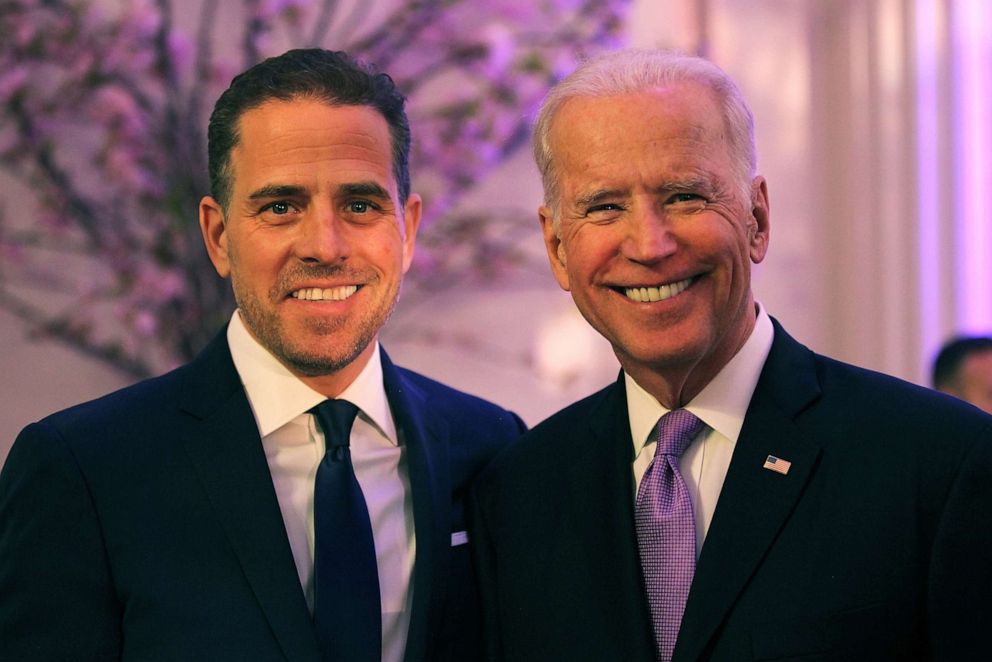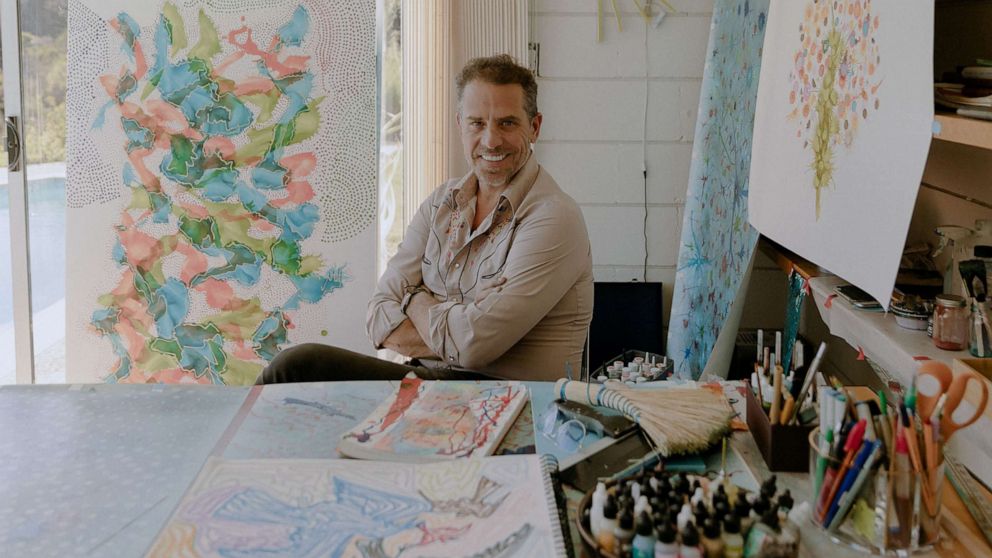White House officials arrange confidential sales of Hunter Biden's art
A New York gallery owner will facilitate sales of Hunter Biden's original artwork, an arrangement meant to diffuse concerns over buyers paying top dollar to win influence with the president's son, according to a source familiar with the situation.
The gallerist, Georges Berges, will independently set prices on the artwork of President Joe Biden's son and keep the identities of buyers confidential, including from the president and administration officials. Berges will be the sole person authorized to collect, reject and agree on offers. Berges has agreed to reject any offer that seems unusual, including offers above asking price.
White House officials were involved in creating the arrangement, according to the source, as a way to avoid any suggestion of preferential treatment or conflict of interest.
According to the Washington Post, which first reported the story, Berges has said Hunter Biden's artwork could be priced anywhere from $75,000 to $500,000.
But ethics experts are raising concerns about the agreement.
"This arrangement is problematic. The best disinfectant, in this case, would have been to have a publicly open process. The public could see who the purchasers are, and then it would be incumbent upon the Bidens to bear the burden of saying why it isn’t a conflict," said Meredith McGehee, executive director of Issue One, a nonprofit dedicated to reducing the influence of money in politics.

"The White House went the absolute opposite way they should have gone. The only people, in the end, who won’t know who the buyers are is the public. By going the shadow direction, this raises more questions than answers," she said.
In a statement to ABC News, White House deputy press secretary Andrew Bates said "the president has established the highest ethical standards of any administration in American history, and his family’s commitment to rigorous processes like this is a prime example."
But Richard Painter, who was President George W. Bush's top ethics lawyer, told ABC News he would have counseled against a secrecy deal for the president's son during his time in the White House.
"The best solution would be to paint now, sell later, after his father is out of office," Painter said.
"The problem is they chose the secrecy route and that just never works. I don't want to say it's like Trump's tax returns, because he's not the president. But whenever you don't disclose something, whenever there's secrecy people will assume the worst," he added.
Still, Painter acknowledged Hunter Biden is not a government employee and has the right to do what he wishes with his art.
Hunter Biden has long used art as a way to cope with addiction and life tragedies, including the death of his brother Beau in 2015.
Biden said in a New York Times interview that painting "put my energy towards something positive."
"It keeps me away from people and places where I shouldn't be," he said in the interview.
Don Fox, former general counsel of the Office of Government Ethics under the Obama administration, noted that career opportunities for children of any president are always subject to intense scrutiny.
"With visual art, the name of the artist is a huge factor in a piece's value. The screening mechanism that has been put in place for the sale of Hunter Biden's art may not be perfect, but it's the best that could be done where the value of the product is so highlight subjective. Hunter Biden is entitled to earn a living," Fox told ABC News.
Chris Clark, attorney for Hunter Biden, did not respond to a request for comment. A representative at Berges's gallery declined to comment on the record.




